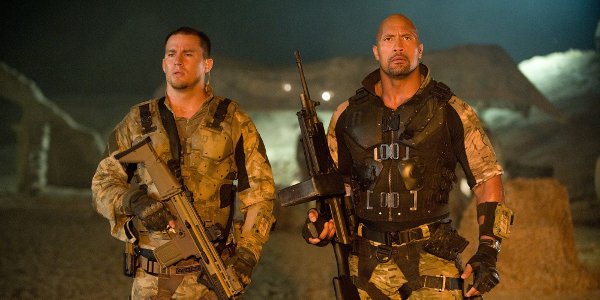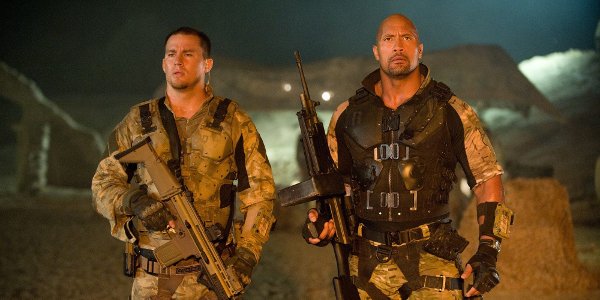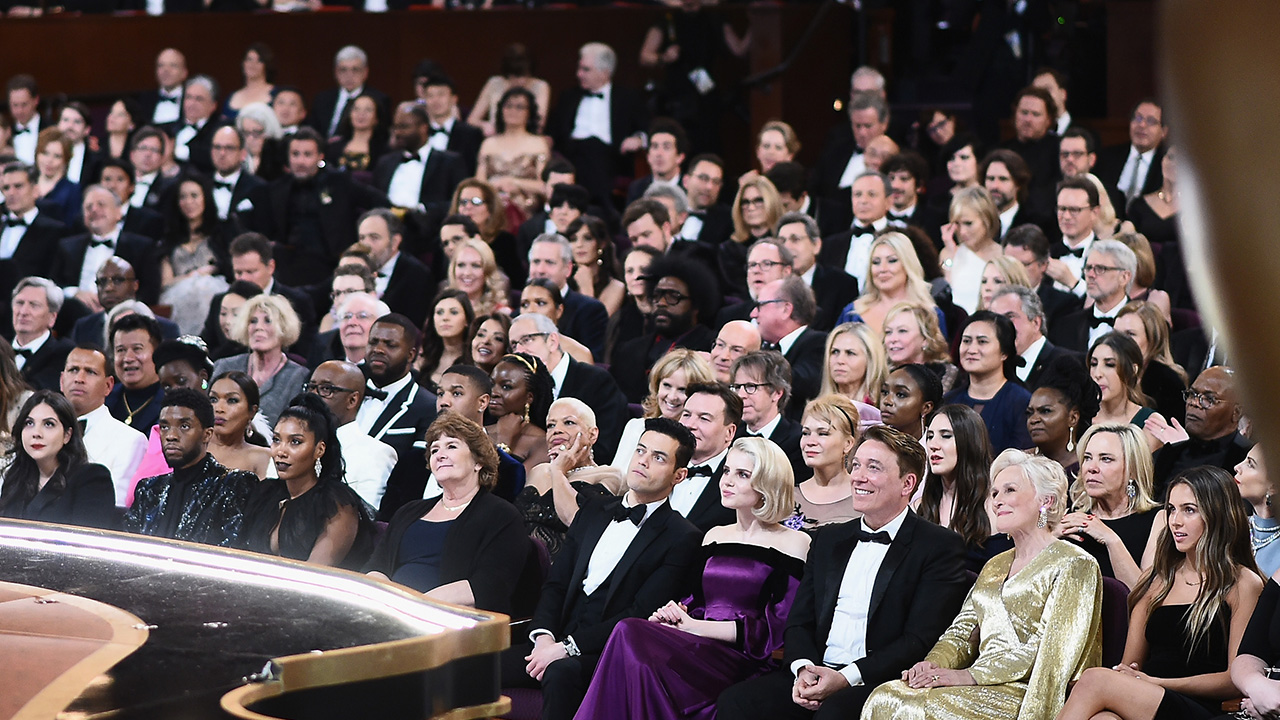The G.I. Joe Retaliation Scene The Writers Were Forced To Include

Your Daily Blend of Entertainment News
You are now subscribed
Your newsletter sign-up was successful
Considering how many beats Deadpool both mocked and cribbed from the superhero movie playbook, there's one really important one that they forgot to poke fun at. We're talking, of course, about the "saving the world" aspect that almost all action films seem to feel is necessary to tell the story. This omission wasn't by accident, as its writers, Rhett Reese and Paul Wernick, were inspired to do so after being forced to include a scene in G.I. Joe: Retaliation that followed that very edict.

During their interview on Jeff Goldsmith's podcast The Q&A, Rhett Reese and Paul Wernick revealed that executives they were working with on the 2013 sequel gave them a compulsory note when it came to their story. That note was that London had to go, and the screenwriters explained their reservations with that scene as follows:
It's why we had to blow up London in G.I. Joe: Retaliation. We didn't want to blow up London, because we were like, 'If you blow up London, 9 million people just died. That's not a win.' … It happened because, 'we've gotta raise the stakes!'
However, the destruction of London in G.I. Joe: Retaliation wasn't all for naught, as it did inspire Rhett Reese and Paul Wernick to shape Deadpool without the typical "save the world" or "ticking clock" tropes. Instead, they went with an old classic that's been left to gather dust and age: the hero's quest to save his future baby mama. In fact, Fox was not only ok with the film tackling more of a romantic motivation, they were also fine without forcing Reese and Wernick to "raise the stakes," thus repeating the unnecessary loss of life in their comic book movie. To be completely honest, Deadpool was better off with the path that it took.
With all of the other films in the superhero genre taking themselves seriously on the "epic" scale of destruction and heroism that the world always seems to hang in the balance, Deadpool took its story just as seriously – only on a more personal level. Though while the film did have the proper third act action showdown, it took place on a scrapped Helicarrier surrogate, as opposed to in the middle of a bustling city, or in the case of G.I. Joe: Retaliation, a major European nation. While both Marvel and DC's film offerings this spring will focus on the fallout of such events, Deadpool just isn't that kind of movie. Wade Wilson isn't a "hero," so to make him fight the typical hero's quest is not only hypocritical, it requires the sort of personal growth that clashes with the film's tone.
Overall, Deadpool is both a lover and a fighter. The only difference between all of the other heroes on the market is that he's fighting because of his love, and that's pretty much it. With the way the film retrofits the "saving the girl" trope for its own, more progressive uses, Rhett Reese and Paul Wernick's script is allowed to tell a very unique love story through some unconventional means. So if G.I. Joe: Retaliation had to be sacrificed to give us a better Deadpool film, then perhaps the right movie was sacrificed in the name of the Hollywood gods.
This is all the more reason for you to pay homage to said Hollywood gods by seeing Deadpool as many times as you can, as the film is in theaters now.
Your Daily Blend of Entertainment News

Mike Reyes is the Senior Movie Contributor at CinemaBlend, though that title’s more of a guideline really. Passionate about entertainment since grade school, the movies have always held a special place in his life, which explains his current occupation. Mike graduated from Drew University with a Bachelor’s Degree in Political Science, but swore off of running for public office a long time ago. Mike's expertise ranges from James Bond to everything Alita, making for a brilliantly eclectic resume. He fights for the user.
